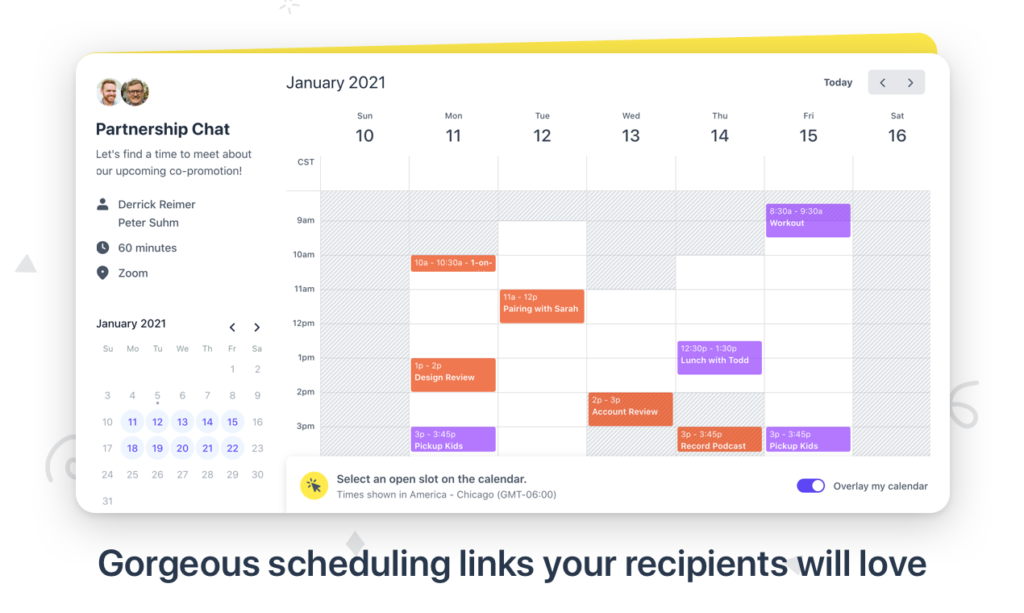Hi, I’m James. Thanks for checking out Building Momentum: a newsletter to help startup founders and marketers accelerate SaaS growth through product marketing.
SPONSORED
SavvyCal — Scheduling Software Everything Will Love
Give your schedulers a calendar, not a list of time slots. Allow recipients to overlay their calendar on top of yours to easily find mutual availability. Connect all your calendars (Google, Outlook, and iCloud all available) and integrate your favorite tools with Zapier.
Product marketing is in high demand. Companies of all shapes and sizes are finally realising that product marketers have a multiplier effect on product, marketing, and sales efforts.
And accordingly, there’s been a huge increase in the number of product marketers, although not enough supply to fulfil demand. Our ranks have also been boosted with talented colleagues from across the marketing, success, and sales spectrums making the move to product marketing roles and helping to fight the good fight.
I’ve hired or helped hire product marketers at all different levels (not to mention, having been through the hiring process multiple times myself).
Originally this post was going to be a rant, complaining about everything from the wilfully bad practices I’ve heard, to common misfires from people who should know better. But I decided to take the high road instead.
Here’s five brief tips to consider when you’re hiring a product marketer.
In this post:
Be absolutely clear on what you’re looking for
While product marketers are like Swiss army knifes with skills applicable to everything from pricing to positioning to product launches, trying to blindly hire a PMM without a clear and pruned understanding of the main duties they’ll perform over the next 12-24 months is a recipe for disaster.
Think about what’s absolutely necessary: this will probably be product launch execution, customer/market insight, sales enablement.
Then what else is a nice-to-have? Think about the base skills you expect will make them successful: research, writing, collaboration, analysis. Maybe expertise within a specific industry, competitive intelligence, content strategy, product-led growth, strategy… whatever you expect to require from them over the next ~2 years.
Make sure these are clearly communicated in the job description as nice-to-haves, but not requirements. You’ll see fewer applications from minority groups, and miss out on the right talent for you.
Have a straightforward, unbiased recruitment process
What can you do in 30 minutes? Maybe relax in a long shower, or a hot bath. Get in a quick workout, or a few chapters of that book you just can’t put down.
What can’t you do in 30 minutes? Meet a product marketer, understand their background, identify and learn about relevant crossovers of experience, and make a decision about whether they’re worth putting through the process or not.
I’ve heard some really bad examples, particularly over the last few years with the move to remote hiring. Whilst nothing like this horrific example from Canonical, some companies are either wildly overcomplicating with multiple, superfluous steps, or badly over-indexing on biased gut-feel.
Here’s the process I’ve recommended before:
- Application:
- Require resume
- No cover letters
- Ask two questions in the application: ‘Why do you think you would be a good fit for this role?’ and ‘Tell us about a product marketing project you’re particularly proud of.’
- CV screen:
- Prioritise relevant resumes by experience and answers to the two questions
- If applicant has significant professional experience, disregard education
- If applicant has less professional experience, prioritize on skills demonstrated in other jobs
- Recruiter screen:
- 25 minute call to validate application
- Understand what they’re looking for
- Match with salary range
- Hiring manager interview:
- 45 minute video call
- 10 minutes getting-to-know-you
- 20 minutes interviewer-led discussion: dive into project experience, asking clear questions and expecting structured STAR (situation, tasks, action, results) answers
- 15 minutes applicant-led discussion
- Outcome: specific feedback on their suitability (strong yes, yes, no, hard no)
- Meet the team interviews:
- 30 minute video calls with 2/3 team members
- 5 minutes getting-to-know-you
- 15 mins interviewer-led discussion: relevant projects, learnings, culture-add questions, asking clear questions and expecting structured STAR answers
- 10 minutes applicant-led discussion
- Outcome: specific feedback on their suitability (strong yes, yes, no, hard no)
- If tight call between 2-3 applicants, final calls with hiring manager focusing on working style
- If questions on technical suitability, short (~1hr expected) take-home task detailing their approach to solving a problem with review call with hiring manager
Give clear feedback
If a hiring manager has spoken to an applicant, you owe them some feedback.
Great: “We really liked your approach to X. Unfortunately for this role, we’re looking for someone with more experience on Y.”
Bad: “You just don’t have the X-factor we’re looking for” For real. I know a recruiter and hiring manager has given this feedback before and they are 100% on my avoid list.
Sharing feedback is the payment-in-kind for the time the candidate has invested in your process. It’s a gift that helps them improve their search and understand their space in the market. Not giving constructive feedback is evil, no matter how busy you are.
And if you can’t qualify why you don’t think a candidate is suitable, then you will only find the answer by evaluating the process and your own biases. (And you might not like what you uncover.)
Take a bet on junior/mid-level product marketers
It’s common for mid-to-senior product marketers to get ~3-5 recruiter outreaches a week right now, if not in one day.
You can either stand out by offering higher salaries and innovative outreach to the cream of the crop, or you can take the more-rewarding path less travelled and take a bet on product marketers with less experience, but just as much smarts and motivation.
Whether you’re hiring someone into their first product marketing role from a customer success, content marketing, or even sales role, you need to evaluate for the skills that indicate product marketing thinking: customer empathy, product savviness, and collaborative working styles.
One of the most common misconceptions that I hear, as reasons why hiring more junior folks wouldn’t work, is that the hiring managers don’t have time to train them up.
I think this is an excuse. Firstly, if a manager can’t spend their time training and supporting a team-member, their priorities might not be aligned. Secondly, there’s a wealth of training and education programs available for product marketers, from the Product Marketing Alliance to my course, WTF is Go-To-Market?.
You can’t always hire the perfect PMM for your business, but trust me: you can build one.
What was your product marketing hiring process like?
I’m always interested in what hiring managers have set out, but what I find even more juicy is the candidate experience. Connect with me on LinkedIn, Twitter, or email and let me know what your best – and worst – hiring experience was like.
Thanks for reading! Let me know what you thought – find me on Twitter and LinkedIn.
P.S. If you’ve found value in Building Momentum, could you buy me a coffee? Here’s my tip jar – any support is gratefully appreciated!
P.P.S: If you enjoyed this post, will you share Building Momentum with your network?





